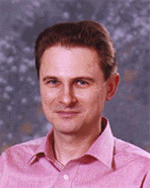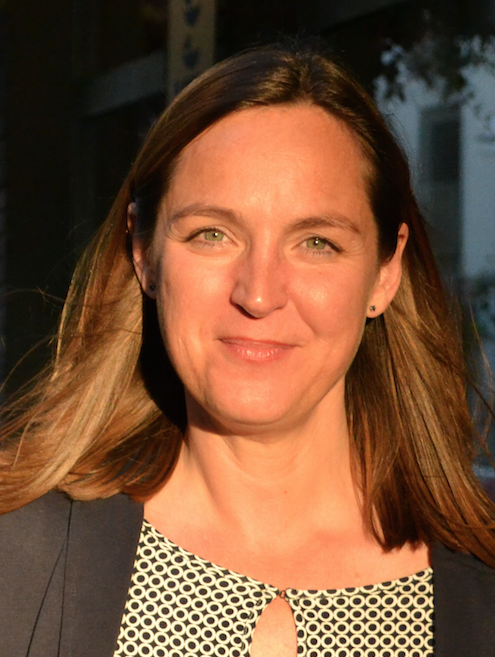ITC Conference Grants
Conference Grants (CG) are introduced as a new tool for enhancing research collaboration (http://www.cost.eu/media/cost_stories/conference-grants-new-vademecum-2017). Applicants must be PhD Students or Early Career Investigators (ECI) from Participating Inclusiveness Target Countries (ITC). The following countries are considered ITC: Bosnia-Herzegovina, Bulgaria, Cyprus, Czech Republic, Estonia, Croatia, Hungary, Lithuania, Latvia, Luxembourg, Malta, Montenegro, Poland, Portugal, Romania, Slovenia, Slovakia, the Former Yugoslav Republic of Macedonia, Republic of Serbia and Turkey.
A Calculus for Modeling Floating Authorizations
Presenter: Ivan Prokic
Conference: International Conference on Formal Techniques for Distributed Objects, Components, and Systems (FORTE 2018)
Location: School of Computer Science of the University Complutense of Madrid, Madrid, Spain
Controlling resource usage in distributed systems is a challenging task given the dynamics involved in access granting. Consider, e.g., the setting of floating licenses where access can be granted if the request originates in a licensed domain and if the number of active users is within the license limits. Access granting in such scenarios is given in terms of floating authorizations, addressed in this paper as first class entities of a process calculus model, encompassing the notions of domain, accounting and delegation. We present the operational semantics of the model in two equivalent alternative ways, each informing on the specific nature of authorizations. We also introduce a typing discipline to single out systems that never get stuck due to lacking authorizations, addressing configurations where authorization assignment is not statically prescribed in the system specification.
Presenter: Ivan Prokic
Conference: International Conference on Formal Techniques for Distributed Objects, Components, and Systems (FORTE 2018)
Location: School of Computer Science of the University Complutense of Madrid, Madrid, Spain
Controlling resource usage in distributed systems is a challenging task given the dynamics involved in access granting. Consider, e.g., the setting of floating licenses where access can be granted if the request originates in a licensed domain and if the number of active users is within the license limits. Access granting in such scenarios is given in terms of floating authorizations, addressed in this paper as first class entities of a process calculus model, encompassing the notions of domain, accounting and delegation. We present the operational semantics of the model in two equivalent alternative ways, each informing on the specific nature of authorizations. We also introduce a typing discipline to single out systems that never get stuck due to lacking authorizations, addressing configurations where authorization assignment is not statically prescribed in the system specification.
An Efficient Characterization of Petri Net Solvable Binary Words
Presenter: Lukasz Mikulski
Conference: 39th International Conference on Applications and Theory of Petri Nets and Concurrency (Petri Nets 2018)
Location: Bratislava, Slovakia, June 24-29, 2018
We present a simple characterization of the set of Petri net solvable binary words. It states that they are exactly the extensions of the prefixes of Petri net cyclic solvable words, by some prefix \(x^k\) , where x is any letter of the binary alphabet being considered, and k is any natural number. We derive several consequences of this characterization which, in a way, shows that the set of solvable words is ãsmaller than expectedã. Therefore, the existing conjecture that all of them can be generated by quite simple net is not only confirmed, but indeed reinforced. As a byproduct of the characterization, we also present a linear time algorithm for deciding whether a binary word is solvable. The key idea is that the connection with the cyclic solvable words induces certain structural regularity. Therefore, one just needs to look for possible irregularities, which can be done in a structural way, resulting in a rather surprising linearity of the decision algorithm. Finally, we employ the obtained results to provide a characterization of reversible binary transition systems.
Presenter: Lukasz Mikulski
Conference: 39th International Conference on Applications and Theory of Petri Nets and Concurrency (Petri Nets 2018)
Location: Bratislava, Slovakia, June 24-29, 2018
We present a simple characterization of the set of Petri net solvable binary words. It states that they are exactly the extensions of the prefixes of Petri net cyclic solvable words, by some prefix \(x^k\) , where x is any letter of the binary alphabet being considered, and k is any natural number. We derive several consequences of this characterization which, in a way, shows that the set of solvable words is ãsmaller than expectedã. Therefore, the existing conjecture that all of them can be generated by quite simple net is not only confirmed, but indeed reinforced. As a byproduct of the characterization, we also present a linear time algorithm for deciding whether a binary word is solvable. The key idea is that the connection with the cyclic solvable words induces certain structural regularity. Therefore, one just needs to look for possible irregularities, which can be done in a structural way, resulting in a rather surprising linearity of the decision algorithm. Finally, we employ the obtained results to provide a characterization of reversible binary transition systems.
Reversing Computations Modelled by Coloured Petri Nets
Presenter: Marcin Piatkowski
Conference: International Workshop on Algorithms & Theories for the Analysis of Event Data 2018 (ATAED@PetriNets/ACSD 2018)
Location: Bratislava, Slovakia, June 25, 2018
Reversible computation is an unconventional form of computing where any sequence of performed operations can be executed in reverse order at any point during computation. It has recently been attracting increasing attention as on the one hand it promises low-power computation and on the other hand it is inherent or of interest in a variety of applications. In this paper we propose a structural way of translating reversing Petri nets (RPNs), a formalism that embeds the three main forms of reversibility (backtracking, causal reversing and out-of-causal- order reversing), to Coloured Petri Nets (CPNs), an extension of traditional Petri Nets, where tokens carry data values. The translation into the CPN model uses additional places and transitions in order to capture the machinery employed in the RPN framework and demonstrates that the abstract model of RPNs, and thus the principles of reversible compu- tation, can be emulated in CPNs. The transformation can be automated and utilized for the analysis of reversible systems using CPN Tools.
Presenter: Marcin Piatkowski
Conference: International Workshop on Algorithms & Theories for the Analysis of Event Data 2018 (ATAED@PetriNets/ACSD 2018)
Location: Bratislava, Slovakia, June 25, 2018
Reversible computation is an unconventional form of computing where any sequence of performed operations can be executed in reverse order at any point during computation. It has recently been attracting increasing attention as on the one hand it promises low-power computation and on the other hand it is inherent or of interest in a variety of applications. In this paper we propose a structural way of translating reversing Petri nets (RPNs), a formalism that embeds the three main forms of reversibility (backtracking, causal reversing and out-of-causal- order reversing), to Coloured Petri Nets (CPNs), an extension of traditional Petri Nets, where tokens carry data values. The translation into the CPN model uses additional places and transitions in order to capture the machinery employed in the RPN framework and demonstrates that the abstract model of RPNs, and thus the principles of reversible compu- tation, can be emulated in CPNs. The transformation can be automated and utilized for the analysis of reversible systems using CPN Tools.
Reversible Computation in Petri Nets
Presenter: Kyriaki Psara
Conference:Reversible Computation - 10th International Conference (RC 2018)
Location:Leicester, UK, September 12-14, 2018
Reversible computation is an unconventional form of computing where any executed sequence of operations can be executed in reverse at any point during computation. In this paper we propose a reversible approach to Petri nets by introducing machinery and associated operational semantics to tackle the challenges of the three main forms of reversibility, namely, backtracking, causal reversing and out-of-causal-order reversing. Our proposal concerns a variation of Petri nets where tokens are persistent and are distinguished from each other by an identity. Our design decisions are influenced by applications in biochemistry but the methodology can be applied to a wide range of problems that feature reversibility. We demonstrate the applicability of our approach with an example of a biochemical system and an example of a transaction-processing system both featuring reversible behaviour.
Presenter: Kyriaki Psara
Conference:Reversible Computation - 10th International Conference (RC 2018)
Location:Leicester, UK, September 12-14, 2018
Reversible computation is an unconventional form of computing where any executed sequence of operations can be executed in reverse at any point during computation. In this paper we propose a reversible approach to Petri nets by introducing machinery and associated operational semantics to tackle the challenges of the three main forms of reversibility, namely, backtracking, causal reversing and out-of-causal-order reversing. Our proposal concerns a variation of Petri nets where tokens are persistent and are distinguished from each other by an identity. Our design decisions are influenced by applications in biochemistry but the methodology can be applied to a wide range of problems that feature reversibility. We demonstrate the applicability of our approach with an example of a biochemical system and an example of a transaction-processing system both featuring reversible behaviour.
Reversibility in Component-based Programming Language
Presenter: Vaidas Giedrimas
Conference:The IEEE 12th International Conference on Application of Information and Communication Technologies
Location:Almaty, Kazakhstan, October 17-19, 2018
Reversible computing is an emerging paradigm which is giving new challenges for software engineering, including programming languages refinement. Currently there exist the implementations of reversible computing languages for structural and object-oriented programming only. However contemporary highly distributed software is composed from coarse-grain entities such as services or components. The aim of this paper is to present the reversibility aspects for component-oriented programming. The conceptual framework of reversible component- oriented programming is presented and implementation details of reversible component based programming language are discussed.
Presenter: Vaidas Giedrimas
Conference:The IEEE 12th International Conference on Application of Information and Communication Technologies
Location:Almaty, Kazakhstan, October 17-19, 2018
Reversible computing is an emerging paradigm which is giving new challenges for software engineering, including programming languages refinement. Currently there exist the implementations of reversible computing languages for structural and object-oriented programming only. However contemporary highly distributed software is composed from coarse-grain entities such as services or components. The aim of this paper is to present the reversibility aspects for component-oriented programming. The conceptual framework of reversible component- oriented programming is presented and implementation details of reversible component based programming language are discussed.
Reversible Computation - Extending Horizons of Computing

Links
Memorandum of UnderstandingCOST rules and guidelines
Contact
 Irek Ulidowski
Irek Ulidowski
Management Committee Chair
Email
 Ivan Lanese
Ivan Lanese
Management Committee Vice Chair
Email
 Veronica Gaspes
Veronica Gaspes
STSM Coordinator
Email
 Jovanka Pantovic
Jovanka Pantovic
ITC Conference Grant Coordinator
Email
 Anna Philippou
Anna Philippou
COST Action Equality Chair
Email
 Ralph Stuebner
Ralph Stuebner
COST Science Officer
Email
 Michael Kirkedal Thomsen
Michael Kirkedal Thomsen
COST Action Website Chair
Email
Management Committee Chair
Management Committee Vice Chair
STSM Coordinator
ITC Conference Grant Coordinator
COST Action Equality Chair
COST Science Officer
COST Action Website Chair

